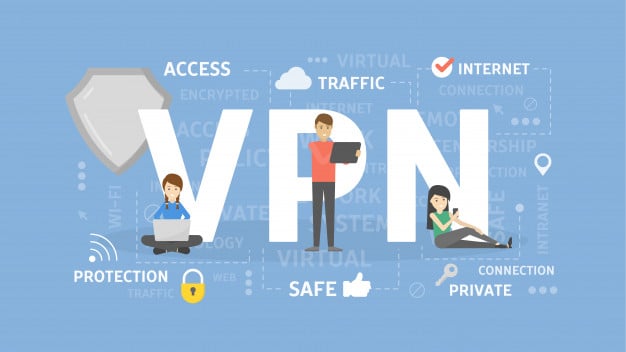
Updated March 20, 2024
VPNs vary considerably depending on how much you pay for them. There are three tiers of VPNs we’re going to examine today, and we’ll determine whether you should be paying for a VPN in that tier.
On average, a VPN costs $10–$13 a month, less if you opt for a yearly subscription. Then you can be looking at paying $50–$60 for your first year, two or three. After that, the price usually jumps into the hundreds.
Free VPNs
Free VPNs can be horrors or wonders. They’re not the best and can be risky.
Windscribe
Windscribe is one of the better VPNs. It’s entirely free, but there’s a catch—you can only use 10GB of data a month, and you have access to a limited number of servers.
Thankfully the servers you can use let you access international Netflix and other streaming services, and that remains if you upgrade your service, which is possible with most VPNs. Once upgraded it’s not exactly cheap—$9 a month.
As you don’t have a ton of extra features if you upgrade, this isn’t a VPN that’s really worth the upgrade price. Even when you go with a yearly plan it’s still pricier per month than many VPNs—$4.08.
Still, it’s not a bad VPN—streaming, no logs and a trustworthy company.
Hola
On the other hand, free VPNs can be nightmarish. People recommend Hola all the time, but in 2015 the company was caught selling data to third parties.
The premium pay is also very much not worth it, as it’s not the best or feature-rich VPN and far from the most secure.
Consensus
Free VPNs aren’t often worth it, used as free or otherwise. So, so far, we can determine you should pay something for a VPN.
Cheap VPNs
There aren’t that many cheap VPNs out there. In doing research for this article, the cheapest we encountered was $9, and they were never pricier than $13. There are some that are really cheap if you get an annual, two-yearly or at most three-yearly subscription, though—and they’re often worth it.
Unfortunately, the price jumps up after one or two short years, and you end up paying the monthly subscription price.
We’ve only come across one VPN that’s dirt-cheap for a longer period, and that’s five years.
Ivacy
Users feel that Ivacy is a good VPN, but not great. It works best on Windows, and not Mac or phone operating systems.
When in use you can stream with Ivacy, the speed is adequate and you get decent privacy and protection, too. What it offers is nothing to scream about, but for a high-value, cheap VPN it’s not bad.
That said, it’s never been publicly audited, nor have many cheaper VPNs. If you’re concerned about data protection, it’s probably best to go with something pricier.
Pricing
- $9.95 monthly
- $42 for an annual subscription
- $69.99 for five years as a first-time buyer
Expensive VPNs
We’re going to look at two incredibly similar expensive VPNs now: NordVPN and Surfshark. They offer around the same level of protection, similar speeds, a vast number of servers and unblocking abilities for streaming.
NordVPN is slightly better as it has more servers, and it’s been publicly audited more than once. Surfshark, on the other hand, has been publicly audited but it was in the very early days of the service and needs updating.
Both of these VPNs have top-notch features like:
- Selecting your security protocol
- Double protection
- Split tunneling
- Static IP address
- Ad-blocking software.
NordVPn costs $11.95 a month and Surfshark is $12.95 a month if you don’t purchase the first-time-buyer yearly plans.
Average VPN Cost
Most VPNs we’ve seen cost between $10–$12, and we feel that’s a reasonable price to pay for one. The higher end of that scale has the best VPNs on the market that are entirely worth the price, so that is how much you should pay for a VPN if you want the best of the best.
If you’re after a deal, then paying an upfront fee for a long-term contract is your best bet.
Final Thoughts
VPNs, when done correctly, are often worth their high monthly price based on all the features they provide. If you’re not looking for full protection and a top-notch VPN then you can purchase a cheaper one.












